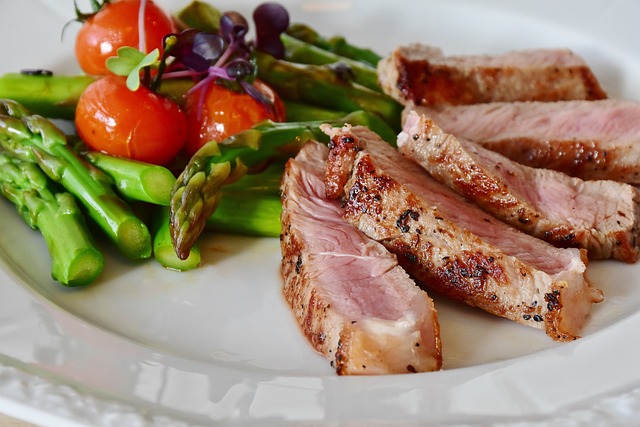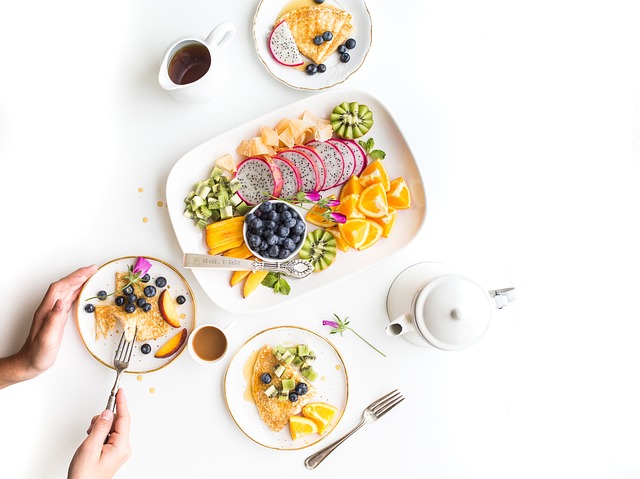

Finding time for wholesome meals might be difficult in today’s fast-paced environment. However, by planning your meals carefully, you may make the route to nutrition and wellbeing easier. Mindful meal preparation goes beyond just cooking and includes a thoughtful approach to food selection, quantity management, and eating habits. It entails planning and preparing meals in advance with purpose and mindfulness, so expediting the process of healthy eating in the middle of a hectic lifestyle.

Setting aside certain time each week for planning is critical. Choose a convenient day to plan your meals, make a shopping list, and prepare ingredients. Begin with simple dishes that need little work, and aim to include a variety of protein, veggies, whole grains, and healthy fats into your meals. Batch cooking fundamental foods like grains, beans, and meats at the beginning of the week may provide as a sturdy basis for numerous meals. Investing in reusable meal prep containers makes it easier to divide meals and store leftovers, resulting in less food waste.
Including diversity and flexibility in your food plan will keep things interesting. Experiment with varied recipes, ingredients, and cuisines to avoid mealtime boredom. Practicing portion control and paying attention to your body’s hunger and fullness signals encourages mindful eating. Take your time with each mouthful, savoring the tastes and textures without distraction.
Mindful meal preparation provides several health and wellness advantages. It encourages mindful eating practices that nurture the body. Planning and cooking healthy meals ahead of time increases the likelihood that people will make better eating choices throughout the week. Additionally, attentive meal preparation saves time and decreases stress on hectic weekdays. Having pre-prepared meals and snacks on hand helps you avoid harmful fast food alternatives and keep on track with your dietary objectives.
Furthermore, attentive meal preparation builds a stronger connection to food and promotes mindful eating habits. Individuals who prepare meals with purpose and mindfulness might develop a stronger appreciation for the sustenance that food gives. Finally, thoughtful meal preparation aids nutrition objectives by offering the skills and resources required to nourish the body with nutrient-dense meals.

To maximize the advantages of attentive meal preparation, try integrating extra tactics into your routine. One good strategy is to use leftovers creatively. Instead of reheating the same meal, turn leftovers into different dishes to keep dinners interesting and varied throughout the week. For example, use leftover roasted veggies to make a robust grain bowl, or add cooked chicken to a salad for extra protein.
Another option is to include the whole family in meal preparation activities. This not only promotes a feeling of community and collaboration, but it also encourages children and partners to make better eating choices. Encourage family members to provide meal ideas, help cut veggies, or split out goods into meal prep containers. This collaborative approach to food preparation may make it a more pleasurable activity for everyone involved.
Also, try including theme evenings into your food planning routine. Set a new theme for each night of the week, such as “Meatless Monday,” “Taco Tuesday,” or “Stir-Fry Friday.” This provides diversity to your meals and makes meal planning more interesting. It also enables you to stock up on particular foods for each theme, which simplifies grocery shopping.
As you continue to improve your mindful meal planning practice, remember to appreciate your accomplishments along the way. Take time to reflect on the beneficial improvements you’ve made to your eating habits and how they’ve affected your general well-being. Recognizing wins, such as eating a tasty meal with loved ones or seeing changes in your energy and mood, may help maintain good behaviors and urge you to continue emphasizing nutrition and wellbeing.

For those looking to improve their mindful meal planning game, learning advanced methods may improve both the experience and the results. One such strategy is to include batch cooking into your daily practice. Set aside time each week or month to prepare significant amounts of essential foods like grains, meats, and sauces that may be used to make a variety of meals. Portion these cooked items into meal prep containers or freezer bags for fast and easy meal assembly all week.
Another sophisticated method is to use ingredient rotation and seasonal meal planning. Plan meals around fresh, in-season vegetables to embrace the variation. This not only diversifies your diet, but also benefits local farmers and decreases your environmental effect. Incorporating ingredient rotation ensures that you get a variety of minerals and phytochemicals while avoiding dietary monotony.
Experimenting with advanced culinary methods may also add interest to your mindful meal preparation routine. Try batch roasting veggies for meal bowls, mastering one-pot cooking for simple cleaning, or experimenting with exotic cuisines to discover new taste profiles and culinary experiences. Learning new cooking skills not only broadens your culinary horizons, but also boosts your confidence in the kitchen, making meal preparation more pleasurable and fulfilling.
Consider adding meal prep themes or challenges to keep things fresh. Challenge yourself to prepare a week’s worth of meals using just pantry essentials, take on a “no-waste” meal prep challenge to reduce food waste, or organize a meal prep swap with friends or family to share recipe ideas and ready meals. These themed challenges not only make meal preparation more enjoyable, but they also promote creativity and ingenuity in the kitchen.
As you learn more about advanced mindful meal planning strategies, keep in mind that your requirements and tastes may change. Accept the process of continual learning and exploration, and do not be afraid to go outside of your comfort zone. With time and effort, you’ll become more adept at mindful meal preparation, enabling you to realize the many advantages of feeding yourself and your loved ones nutritious, cooked meals.
Finally, implementing advanced tactics into your mindful meal planning routine may elevate your nutrition and health quest to the next level. There are several ways to improve your meal prep experience, including bulk cooking, seasonal meal planning, experimenting with new culinary methods, and participating in themed challenges. Accept the voyage of discovery and get the delightful benefits of mindful eating and meal planning.
Disclaimer: This content is for informational purposes only and is not intended as medical advice, diagnosis, or treatment. Always seek the advice of your physician or other qualified health provider with any questions you may have regarding a medical condition.

Sign up for our newsletter to receive the latest recipes and health tips, meticulously reviewed to align with the most recent nutritional science.
Copyright © 2024 Health Recipe Club
Our content is intended for informational purposes only and should be used in conjunction with professional medical advice. Recipes and health tips are regularly reviewed to reflect current nutritional understanding, aiming to integrate healthy eating into a joyful lifestyle.